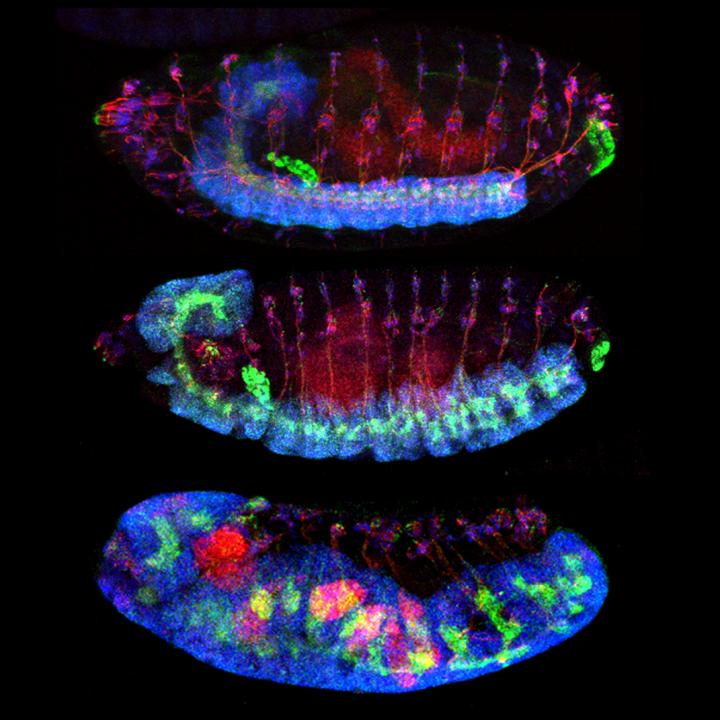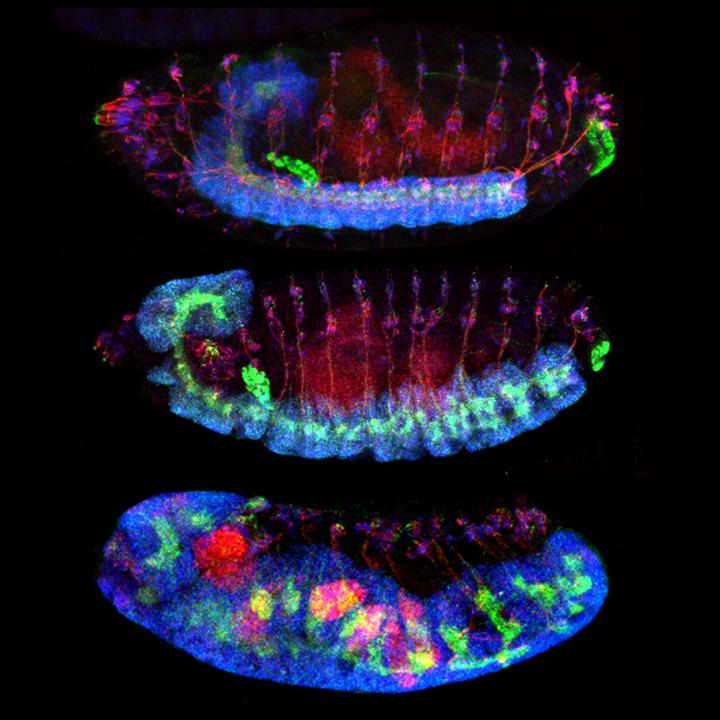
Credit: Shinya Yamamoto, Baylor College of Medicine
People with Icelandic heritage are more likely to carry a novel rare mutation in the TM2D3 gene, which leads to greater risk for Alzheimer's disease, based on a new study published October 14th, 2016 in PLOS Genetics by Johanna Jakobsdottir of the Icelandic Heart Association, Sven van der Lee of Erasmus University in Rotterdam, and colleagues.
Alzheimer's disease is the most common form of dementia, affecting about 30% of adults above the age of 85. While scientists have already identified many common genetic variants that contribute to the disease, rare mutations with significant effects in the population have been more difficult to discover, except in rather isolated families. To find such rare variations, a collaboration of Alzheimer's researchers throughout the U.S. and Europe performed an analysis covering more than 11,000 genes in 1,393 late-onset Alzheimer's disease patients. They identified a variant in the TM2D3 gene that is associated with both a higher risk and earlier age of onset of Alzheimer's disease.
Interestingly, the TM2D3 genetic variant is about 10 times more common in Icelanders compared to the European population in general. Nevertheless, the variant remains quite rare and is present in fewer than 1% of the Icelandic population, and the prevalence of Alzheimer's disease in Iceland is comparable to that seen elsewhere in the world. The researchers also performed experiments in a fruit fly model, in which human TM2D3 was substituted for an equivalent fly gene, demonstrating that the discovered variant interferes with the Notch signaling pathway. Other Notch signaling factors have previously been shown to participate in the generation of amyloid plaque brain pathology in Alzheimer's disease.
Jakobsdottir, van der Lee and colleagues have identified a rare genetic variant associated with Alzheimer's risk, and propose a possible function to explain its role in the disease. The TM2D3 gene has not previously been linked to Alzheimer's, and thus may have importance for understanding the mechanisms that contribute to the late-onset form of the disease.
Johanna adds "We have found a rare variant in the TM2D3 gene that correlates with risk of late-onset Alzheimer's disease and showed that it likely interferes with the Notch signaling pathway, which has relevance for Alzheimer's disease as other Notch signaling factors play a role in amyloid plaque pathology. However, we have not proven causality and further study is needed, including additional experiments in the fly, DNA sequencing to identify additional variants, and RNA sequencing to study effects on gene expression."
###
In your coverage please use this URL to provide access to the freely available article in PLOS Genetics: http://dx.plos.org/10.1371/journal.pgen.1006327
Citation: Jakobsdottir J, van der Lee SJ, Bis JC, Chouraki V, Li-Kroeger D, Yamamoto S, et al. (2016) Rare Functional Variant in TM2D3 is Associated with Late-Onset Alzheimer's Disease. PLoS Genet 12(10): e1006327. doi:10.1371/journal.pgen.1006327
Funding: Infrastructure for the CHARGE Consortium is supported in part by the National Heart, Lung, and Blood Institute (NHLBI, http://www.nhlbi.nih.gov) grant HL105756. Funding support for the CHARGE Consortium Exome Chip analyses is provided in part by the NHLBI grant HL120393. Support for centralized calling of the exome chip was provided by Building on GWAS for NHLBI-diseases: the U.S. CHARGE consortium through the National Institutes of Health (NIH, https://www.nih.gov) American Recovery and Reinvestment Act of 2009 (ARRA) (5RC2HL102419). The CHARGE consortium is a founding component of the Alzheimer's Disease Sequencing Project, and receives sequencing and analysis support through the grants from NIH: U01-AG049506, U01-AG049505, and U54-HG003273. AGES study is supported by the National Institute on Aging (NIA, https://www.nia.nih.gov) contracts N01-AG-12100 and HHSN271201200022C with contributions from the National Eye Institute (NEI, https://nei.nih.gov), National Institute on Deafness and Other Communication Disorders (NIDCD, https://www.nidcd.nih.gov), NHLBI, the NIA Intramural Research Program, Hjartavernd (the Icelandic Heart Association), and the Althingi (the Icelandic Parliament). JMS was supported by grants from the NIH/NIA (R01-AG033193, R01-AG050631, C06-RR029965), the Alzheimer's Association, the American Federation for Aging Research, Huffington Foundation, Jan and Dan Duncan Neurological Research Institute at Texas Children's Hospital, and a Career Award for Medical Scientists from the Burroughs Wellcome Fund. The work was additionally supported by U54HD083092 from the Eunice Kennedy Shriver National Institute of Child Health & Human Development. SY was supported by the Jan and Dan Duncan Neurological Research Institute at Texas Children's Hospital and the Alzheimer's Association. HJB is a Howard Hughes Medical Institute Investigator and also received support from the Robert and Renee Belfer Family Foundation, the Huffington Foundation, and Target ALS. JS is supported by NIH GMR2556929. Detailed funding information for all studies that contributed to this work are provided in S1 Text Funding section. The funders had no role in study design, data collection and analysis, decision to publish, or preparation of the manuscript.
Competing Interests: The authors have declared that no competing interests exist.
Media Contact
Johanna Jakobsdottir
[email protected]





